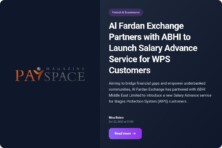PayOS and Mastercard reach another milestone in the development of agentic payments – their first live transaction with the use of an agentic token, cryptographic payment credential that is bound to a verified software agent, not a human cardholder.

PayOS, an agentic payments and value-added services platform, announced that it has completed a live payment transaction using a Mastercard Agentic Token.
The transaction marks a milestone in the development of agentic payment systems, which enable software agents to initiate and manage payments autonomously on behalf of users. They can do it with the help of agentic tokens, cryptographically issued, agent-bound payment credentials that let verified software agents initiate a real payment under constrained rules. These tokens are used instead of card numbers or other standard banking data.
Through its partnership with Mastercard, PayOS leveraged the Agentic Token infrastructure to execute a real-world transaction. This demonstration shows how agentic payments could become a practical part of commerce as the technology matures. The success of a live transaction illustrates how agentic payments can run end-to-end on existing payment rails while keeping issuer and consumer protections. It also proves agents can act on behalf of users under tight rules for scope, time, and auditability.
Mastercard has been advancing agentic payment technologies as part of its broader efforts to modernize digital payments. Its Agentic Token solution is designed to allow trusted software agents to transact securely with merchants, while preserving user control and data privacy. First introduced this May, the enhanced tokenization technology has earlier been piloted by Citi and US bank for AI-enabled e-commerce payments.
PayOS provides APIs and tools that connect agents, wallets, merchants, and financial rails. By integrating Mastercard’s Agentic Token standard, it offers a pathway for agent-directed payments to work at scale, in particular in e-commerce.
The success of this first live transaction underlines the potential for agentic payment models in areas such as recurring billing, automated workflows, and contextual commerce. Both PayOS and Mastercard expect further trials and broader deployment in the near future.









